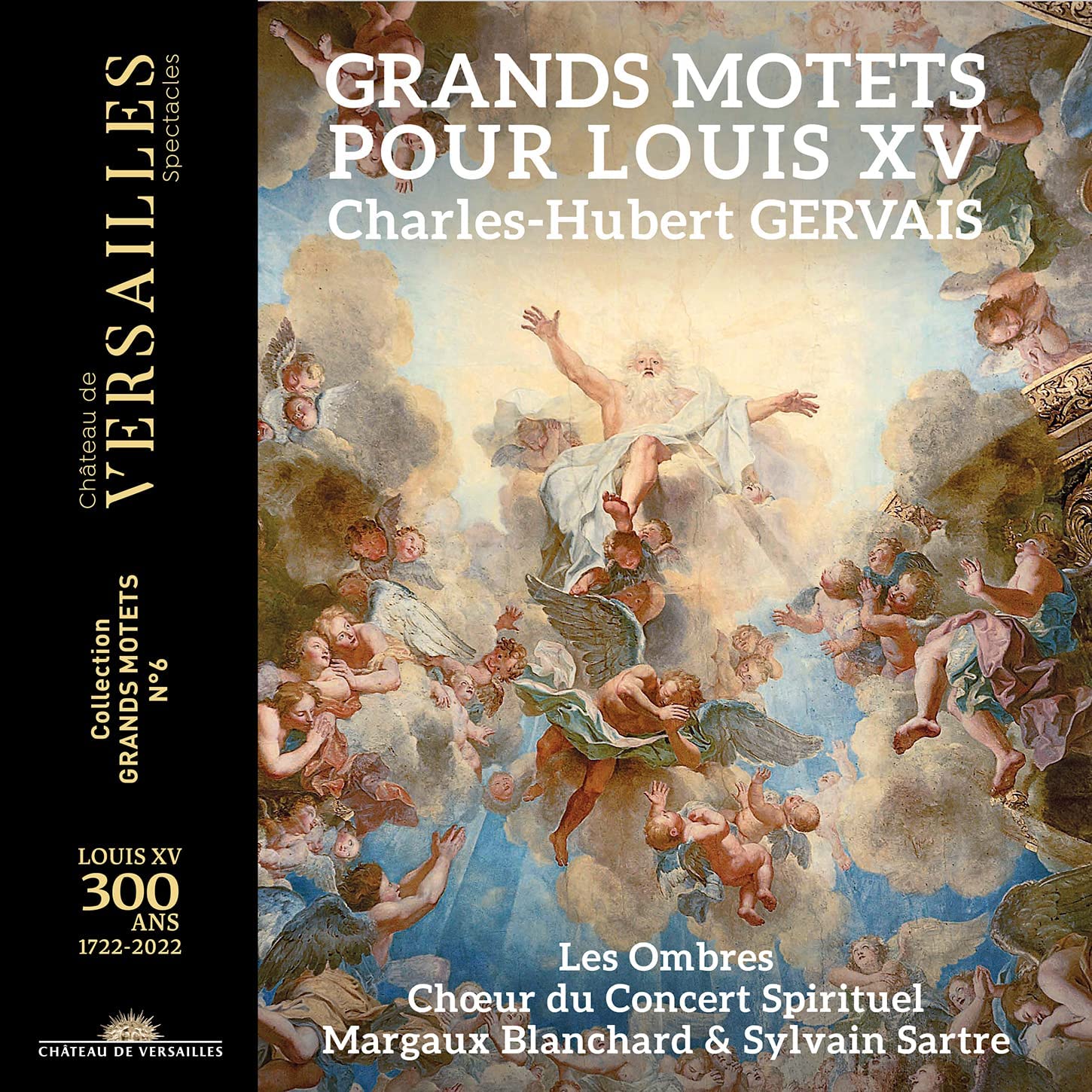Les Ombres, Choeur du Concert Spirituel, Silvain Sartre
57:21
Château de Versailles Spectacles CVS 073
Previous releases in this splendid series devoted to the grand motet repertoire and recorded in the Chapelle Royale at Versailles have been devoted to the known masters: Lully, Delalande, Rameau, and so on. Charles-Hubert Gervais will likely be a less familiar name to most prospective listeners.
Born in Paris in 1671, he spent much of his life in the service of the Duke of Orléans (the Regent from 1715), replacing his father as valet to the duke, who he assisted in the composition of two operas. In 1723 he was one of three composers (along with Campra and Nicolas Bernier) to succeed to three-quarters of Delalande’s position as sous-maître of the Chapelle Royale (traditionally a composer served as sous-maître three months of the year). He died, also in Paris, in 1744. Anecdotally Gervais apparently tried to avoid his position as sous-maître, claiming the Latin motet was not his favoured form of competition, yet, as is adequately demonstrated on the present CD, his achievements in the field merited the considerable fame and recognition granted him both in France and further afield.
The motets included here all follow the customary sectional form, with verses divided between soloists, petit choeur (solo ensemble) and grand choeur supported by orchestra comprising wind and strings. Each motet is given its own distinctive character in Gervais’s settings. Super flumina Babilonis is a setting of the well-known text of Psalm 137, ‘By the waters of Babylon’, with its dramatic juxtapositions into the largely yearning text fully exploited by the composer. The exquisitely lovely opening, announced by the orchestra and taken up by the chorus, captures all the nostalgia felt by captive Israel, the falling sequential figure an expression of intense longing. Later passages such as ‘Quia illic’ (For they that they led us into captivity), with its martial dotted rhythm introduce elements of the dramatic so strongly as to make the prospect of hearing one of Gervais’s tragedies lyrique mouth-watering.
Super flumina is a quite splendid work, arguably the pick of the three recorded here. Jubilate Deo (Psalm 100) is well known for its place in the liturgy. Gervais’s setting of it is for a work of joyous praise not inappropriately pervaded by the spirit of the dance. Introduced as a duet for two sopranos which is then taken up by the full choir, this opening is a fine example of the skill and confidence with which Gervais handles contrasting textures, both choral and orchestral. The final contrapuntal chorus (‘Be thankful to him’) is beautifully laid out and constructed. The final motet is a setting of the Miserere mei (Psalm 51), at once much the longest (it runs about half an hour) and most ambitious of those here. It is also, perhaps predictably, the most uneven, as a general observation more compelling in its penitential passages. That said it opens and ends superbly, starting with a broad, serious bass solo (well, if not outstandingly sung by Benoît Arnould) taken up first by the male voices of the chorus then the upper voices to build sonorously and impressively, a favourite procedure of the composer. The final section (‘That the walls of Jerusalem’) opens with a duet for two sopranos (Marie Perbost and Déborah Cachet, who excel in all they do in these works) before proceeding to a lively contrapuntal chorus that alternates the petit choeur with the grand, while introducing suggestions of modality. Elsewhere hints of the conventional occasionally crop up, but overall these motets reveal a composer well capable of taking his place alongside better-known names.
If marginally failing to attain the exalted level of some previous issues in the series, the performances by one of the lesser known of the profusion of ensembles that currently grace the French early music scene are extremely accomplished. Chorus and orchestra, both smaller than some that essay this repertoire, acquit themselves well, while as already intimated the soloists are first-rate, tenor Nicholas Scott particularly catching the ear among those not so far mentioned.
Brian Robins
